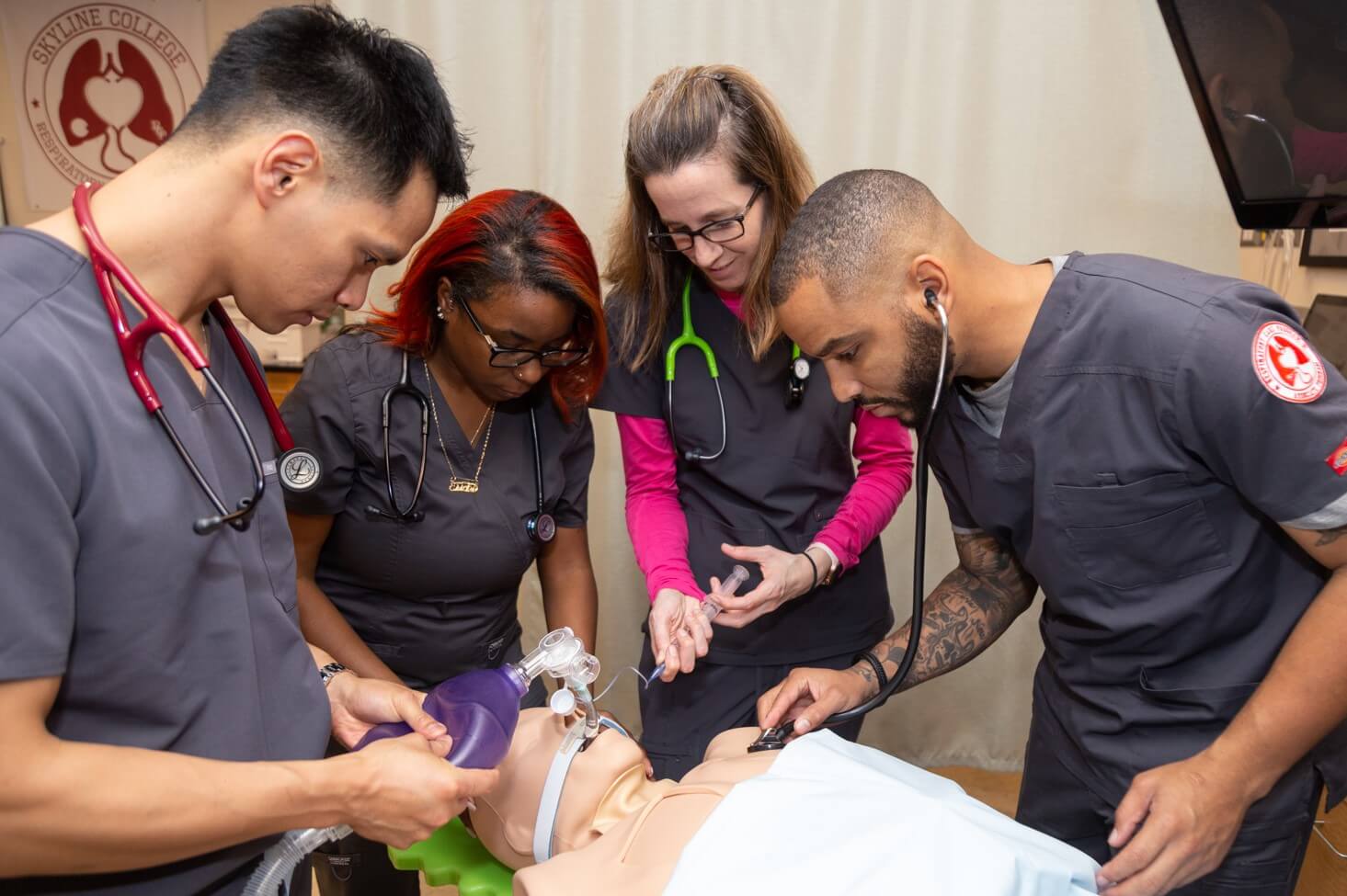Breathing Purpose Into a Profession: An Alumnus’s Journey Through Skyline College and His Enduring Gift to Students
July 31st, 2025
Written by Mila Yoch

For a student from a low-income family, Paul Roggero had his own set of challenges when he walked onto the Skyline College campus—and they weren’t just academic. “My dad died when I was 15. My mom raised me on her own and made huge sacrifices so I could go to college,” Roggero recalls. A $200 scholarship offered by one of the program’s deans—whose own mother had pulmonary disease—made a tangible difference. “It helped me buy books and gas to get to campus. It was a lifeline.”
“I had no idea what I was getting into,” Roggero adds. “It was my sister, who worked in healthcare, who recommended respiratory therapy. She said it was a growing field. I trusted her and I’m so glad I did.”
The Respiratory Care Program at Skyline College is intense, compressing three years of rigorous training into a two-year associate's degree. Students gain both academic instruction and clinical experience, preparing them to care for patients with heart and lung conditions across all stages of life: newborns in respiratory distress, children with asthma or pneumonia, adults managing sleep apnea, and older patients with emphysema or heart failure.
In 1975, a determined Roggero began that journey, uncertain of what lay ahead. Two years later, he graduated from the Respiratory Therapy Program with an Associate of Science Degree in Respiratory Care and a clear sense of purpose.
Roggero remained closely connected to Skyline College throughout his career. After serving in various healthcare roles, Roggero settled into a long-term position at Kaiser Permanente, managing Pulmonary Clinical Services and Patient Transport. His hospital served as a clinical site for students, and he acted as a mentor and liaison, guiding learners through early rotations and helping them deepen their understanding of respiratory care.
In his final clinical years, Roggero supported Skyline College’s launch of a baccalaureate program in respiratory therapy—an innovative step for a community college.
When he retired in 2016, he returned once again to Skyline College, this time as an adjunct faculty member. He taught capstone courses and guided students through the final stages of their academic journey.
His commitment didn’t stop at instruction.
In 2024, inspired by the scholarship that helped launch his career, Roggero worked with the San Mateo County Community Colleges Foundation to establish two new scholarships: one for associate’s degree students and one for those pursuing the baccalaureate. "My vision is to help students who need that extra support to keep going.”
Now retired, Roggero has even made provisions in his trust to sustain the scholarships long into the future. “If I’m still alive and kicking, I’ll add more. If not, the trust will take care of it.”
Looking back, Roggero is filled with gratitude. “This profession gave me meaning, stability—and allowed me to continue living in San Francisco. I hope students in the program look forward to those opportunities as well and that these scholarships help them get there.”
His career would span decades, touching lives, advancing the profession, and eventually returning to the college that gave him his start.
He witnessed the transformation of the field firsthand. Once known as “oxygen technicians,” today’s respiratory therapists operate advanced ventilators, manage home-care devices, and make critical decisions about patient safety. “Technology is central, but so is critical thinking,” Roggero said. “You need to know how to assess a patient, adjust equipment, and respond to changing conditions. It’s not just machines, it’s judgment.”
Skyline’s strong partnerships with clinical affiliates ensure graduates can confidently transition into real-world healthcare environments.
Jessica Hurless, current Skyline STEM Division Dean reinforces the caliber of students entering the profession: “[those] who thrive in this program are compassionate, strong communicators who excel in team settings. Ultimately, they bring skill, empathy, and professionalism to a career that has a profound impact on [community] health.”
“[those] who thrive in this program are compassionate, strong communicators who excel in team settings. Ultimately, they bring skill, empathy, and professionalism to a career that has a profound impact on [community] health.”
- Jessica Hurless, Skyline STEM Division Dean
Roggero echoes that sentiment. “There’s no part of an acute care hospital where we’re not involved. And outside the hospital, we’re still there helping people breathe.”